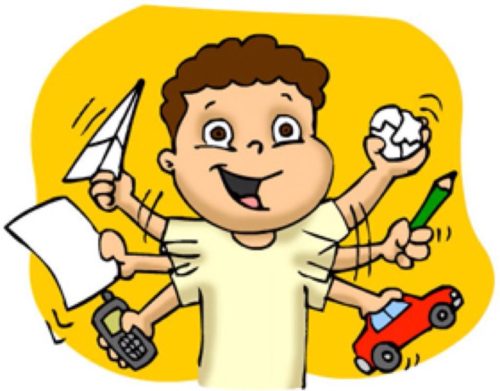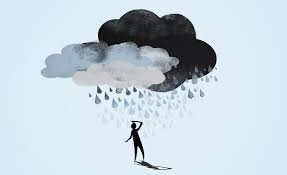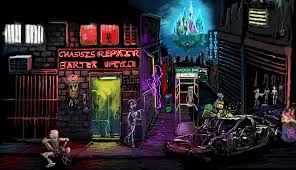
Oppositional Defiant Disorder is characterised by repeated temper tantrums, pointless arguing, vicious outbursts and rulebreaking for the sake of rulebreaking. It’s what used to be known as “being a little shit.” The name comes from how a person with it sets themselves up defiantly in opposition to authority figures or anyone else trying to impose rules upon them.
If it is the protagonist of your story who is the character with ODD, they are extremely unlikely to think that the problem lies with them – but this is where their story gets interesting. If your protagonist has ODD you will be able to show someone whose thoughts twist through all manner of justifications for their behaviour, but who will not willingly take the blame themselves.
After all, your protagonist might actually have a point. Unlike the pure malice exhibited by a psychopath, someone with ODD might have a legitimate grievance against an asphyxiating rule-obsessed bureaucracy, or a surveillance state. This might make for an interesting story about an antihero who came into conflict with authority for the sake of his people or family (or for great justice).
For other characters in your story, a protagonist with ODD might appeal to them as a lovable rogue, or as a troubled soul with a heart of gold. The protagonist likely has a like-minded group of friends, as people with ODD often share the same grievance. This group of friends might have made a mission out of their shared grievance – and then you have a story ready to go.
In this sense, characters with diagnoses of ODD are especially well suited to fiction that appeals to the outsider, such as cyberpunk. Kris Smashtonati of The Verity Key is probably one such character. After all, any person with this condition is going to have some difficulty adjusting to live as a gainfully employed citizen, and that will put them on the margins, where life is more precarious (and dramatic). A properly integrated character with ODD might be better suited to comedy than to drama.
For the antagonists of your story (who are inevitably authority figures of some kind) ‘vindictive’ is a word they might describe the ODD character with. They would say that this character has difficulty regulating emotions or tolerating frustration. Such antagonists would dismiss the protests of the ODD character that the rules were too onerous – the rules are there for everyone’s good, like it or not.
In many ways, telling the story of ODD is really telling a story of an environment. There are believed to be biological factors involved, such as unusual neurotransmitter function or amygdala damage, but a person with ODD rarely develops it in the total absence of family or environmental factors.
Mood disorders are extremely common among the children of parents who have ODD, which gives a major clue about the etiology of the condition. If the protagonist of your story had ODD, it’s possible that his father was a real unpredictable sonofabitch, and the mother likewise. Inconsistent punishment is usually found among the childhoods of people with ODD.
ODD is capable of manifesting in a variety of different settings. Generally speaking, the broader the range of settings in which it manifests, the worse the ODD is. The most common is for oppositional and defiant behaviours to begin in the family home, so that the damage is done long before their first classroom experience.
This generalisation, or one like it, might be the key to understanding your ODD character. Usually the condition arises in response to the perception of unfair treatment from a parent, which may generalise into a belief that any and all authority figures are likewise unfair (and so to be defied). We can then predict that a character with this condition might have conflict with any other character that metaphorically represented a parent (teacher, policeman, bureaucrat etc.).
There is a sense in which ODD is on a spectrum that continues onto Conduct Disorder and, in the worst case, Antisocial Personality Disorder. In this regard, someone with ODD is likely to be much easier to get along with than someone with either of the latter two disorders. They might even be surrounded by such people so that they seem calm and reasonable by comparison.
Esoterically speaking, a character with ODD could be considered a chaotic element. It is unlikely that such a character will contribute to the good order of your story world, and their entrance might even be the spark that gets your story going. Indeed, it’s well possible that the ODD character has taken exception to a particular manifestation of order, and has resolved to break it up at any cost.
*
This article is an excerpt from Writing With The DSM (Writing With Psychology Book 5), edited by Vince McLeod and due for release by VJM Publishing in the summer of 2018/19.



